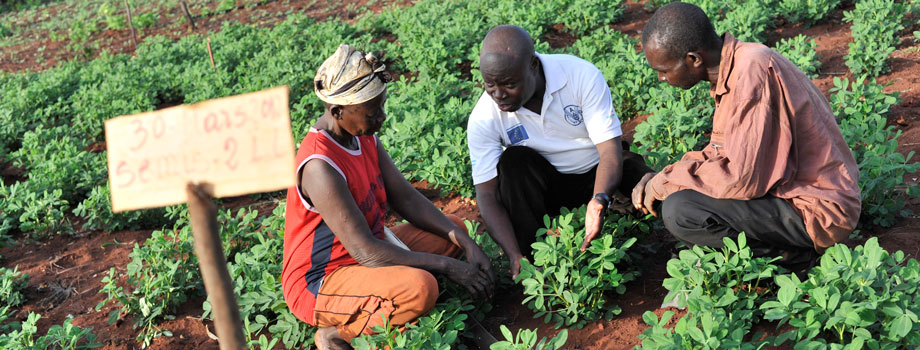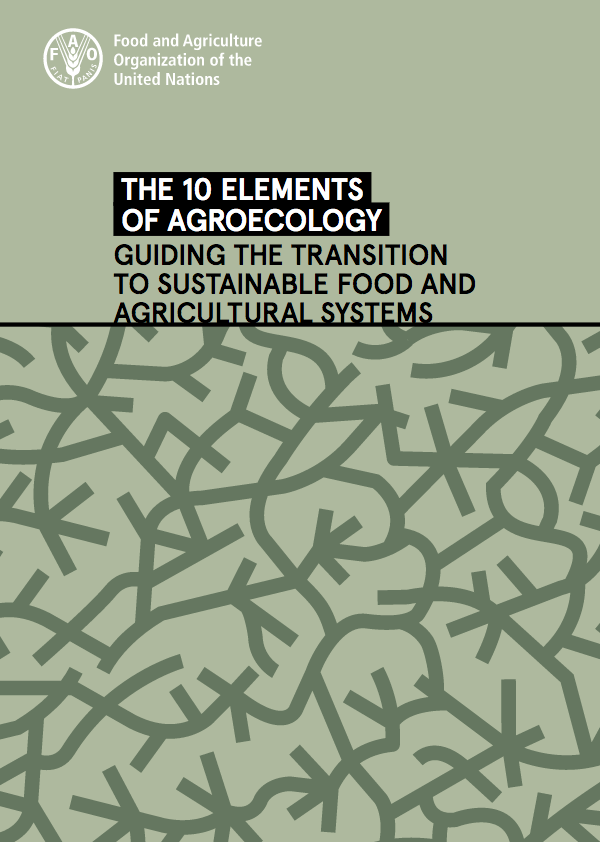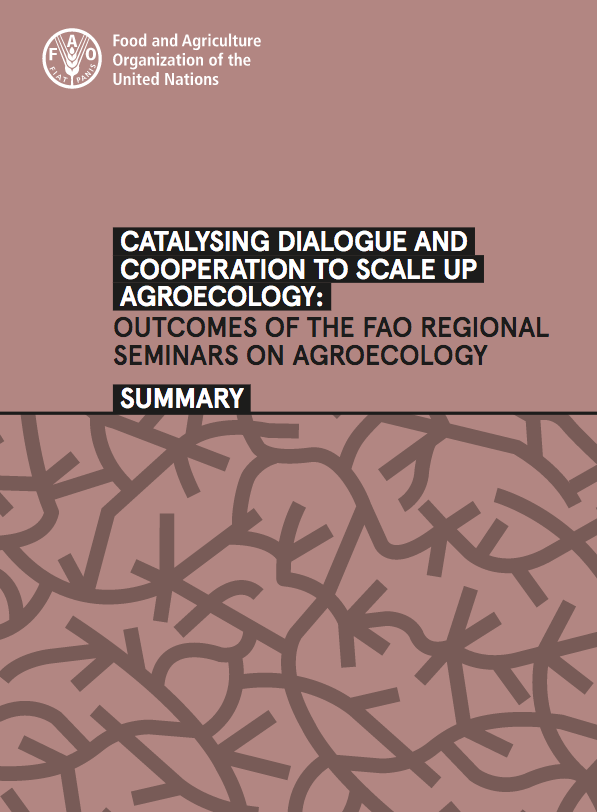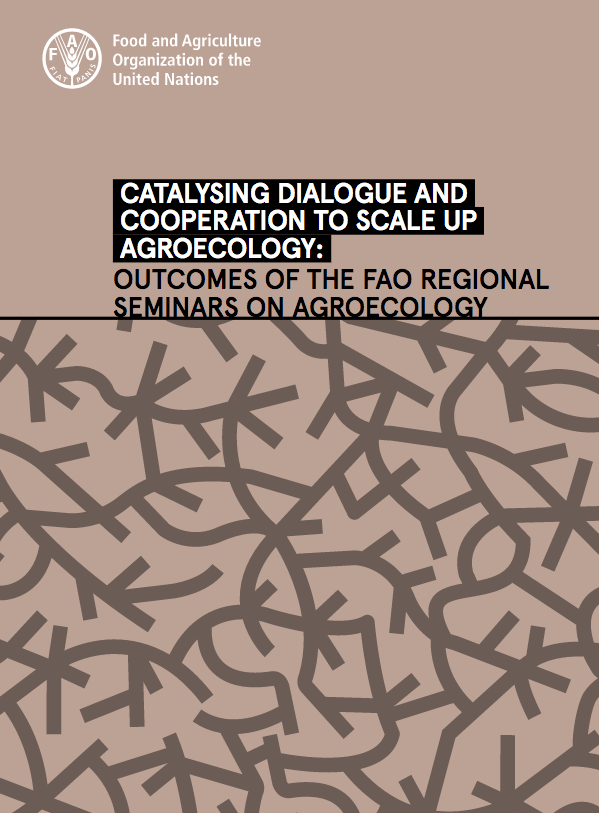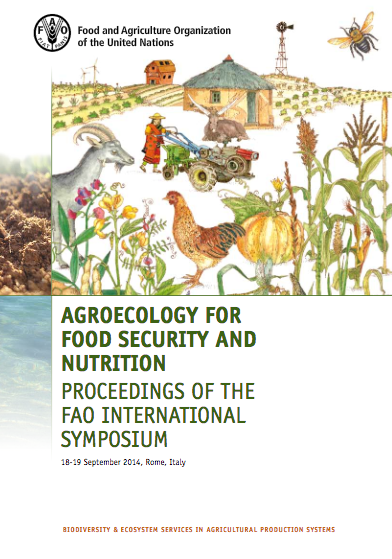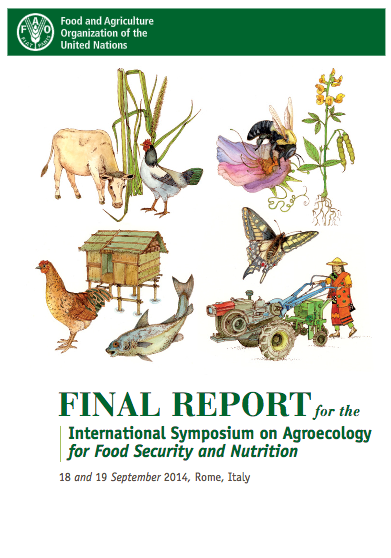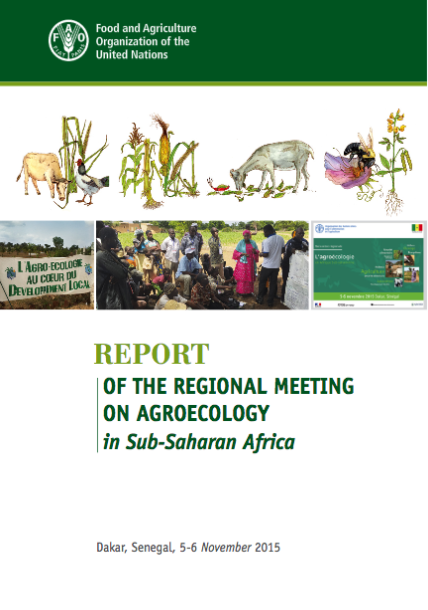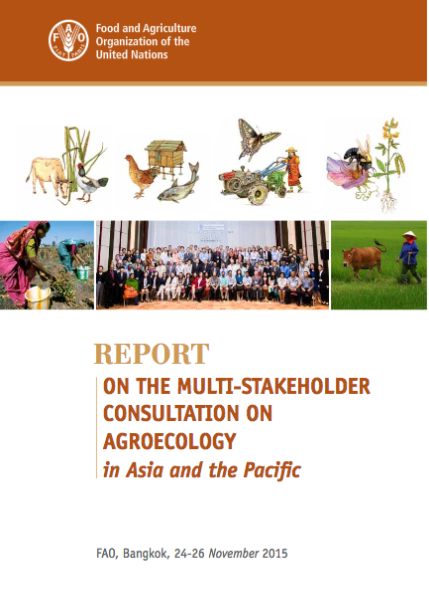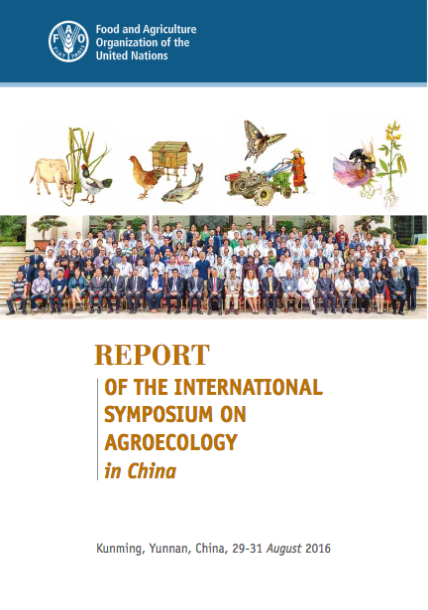FAO’s Work on Agroecology
FAO has played an important role in facilitating global and regional dialogues on agroecology. Responding to the growing interest in agroecology, FAO organized an International Symposium on Agroecology for Food Security and Nutrition in Rome in September 2014, to assess the extent and impact of agroecological practices, identify constraints and develop common priorities. The need to understand the specific local requirements and realities of agroecology led to a series of seven regional multi-stakeholder seminars co-organized by FAO in Latin America and the Caribbean, sub-Saharan Africa, Asia and the Pacific, China, Europe and Central Asia, and the Near East and North Africa from 2015 to 2017.
Based on the success of the regional seminars, in 2018 FAO organized the Second International Symposium on Agroecology: Scaling up Agroecology to achieve the Sustainable Development Goals (SDGs) to move from dialogue to action. The symposium brought together more than 760 participants and catalysed inter-disciplinary dialogue and collaboration from a wide variety of actors.
The outcomes of the symposium include the launch of the Scaling up Agroecology Initiative, in collaboration with UN partners, as well as the presentation of the conceptual framework “10 Elements of Agroecology.“
FAO supports Member States in scaling up agroecological approaches through:
· Strengthening policy processes, by providing technical support to governments for the design, updating, implementation and monitoring of public policies, programmes and projects, including also setting up governance platforms which are an important enabler of agroecology. This is done by bringing together different sectors and actors into a common collaborative framework.
· Compiling and disseminating knowledge, science and innovation, by developing and disseminating scientific evidence, statistical data, best practices and innovations through methodologies and tools that support agroecological practices. The 10 Elements of Agroecology, approved by FAO Council in December 2019, are a conceptual framework that provides guidance to achieve the transformation towards environmentally, socially and economically sustainable agriculture and food systems to achieve Zero Hunger (SDG2) and multiple other SDGs. As an analytical tool, the 10 Elements can help countries to operationalize agroecology. The 10 Elements are a guide for policymakers, practitioners and stakeholders in planning, managing and evaluating agroecological transitions. Another important tool developed by FAO and a large number of partners is the Tool for Agroecology Performance Evaluation (TAPE). TAPE is a comprehensive tool that aims to measure the multi-dimensional performance of agroecological systems across the different dimensions of sustainability, building a global evidence base on the performance of agroecology.
· Provision of technical assistance and execution of Field projects
FAO provides technical assistance in terms of training, capacity building, drafting of programmes, technical guides, curricula and production of learning and advocacy materials on agroecology. With a particular focus on smallholder farmers, this supports the transition to sustainable food and agricultural systems.
· Engagement in Global fora:
FAO engages in global high-level fora and discussions on agroecology and sustainable agriculture and food systems, providing scientific knowledge, tools, evidence and best practices to inform the discussions.
FAO’s work takes on wider significance through the Scaling up Agroecology Initiative, launched in 2018 by FAO and other UN partners to catalyse cooperation within the UN system. The initiative aims to accompany and support national agroecology transition processes through policy and technical capacity that builds synergies between countries. It fosters alliances among different stakeholders, strengthens networks and allows co-creation and sharing of knowledge. The initiative develops, implements and continuously improves tools, instruments and documents for guiding national agroecological transitions.

